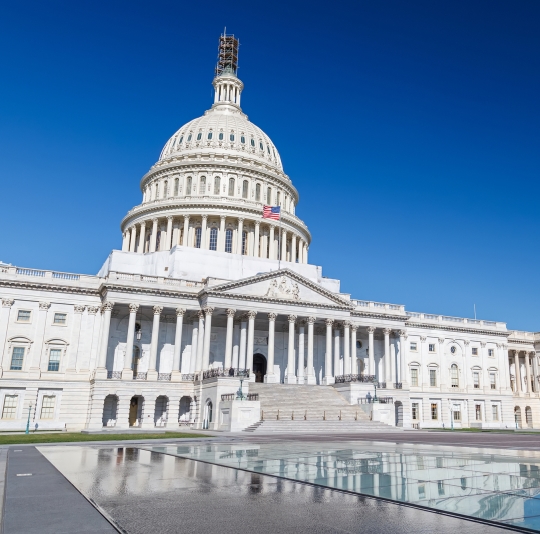Press Releases
Wexton Amendment to NDAA Would Screen for Hate-based Extremism in Security Clearance Process
Washington,
July 16, 2020
Washington, DC -- Congresswoman Jennifer Wexton (D-VA) offered an amendment to the Fiscal Year 2021 National Defense Authorization Act (NDAA) that would close gaps in the security clearance process to prevent those involved with hate and violence based extremist groups from accessing sensitive intelligence. The amendment is cosponsored by Representative Jackie Speier (D-CA), Chair of the House Armed Services Committee, Military Personnel Subcommittee. "Violent extremism and white nationalism have no place in our nation’s military or public service ranks,” said Congresswoman Jennifer Wexton. “Being entrusted with the security of our country comes with a promise that you will protect all Americans and uphold our nation’s values. Violent political ideologies and homegrown extremism pose serious threats to our national security -- my amendment will help close the gaps in our clearance process to root out those who embrace this kind of hate." "The ideology of white supremacist extremists is not compatible with protecting all Americans. Violent extremists should not have access to the nation’s most sensitive intelligence, and giving them such a privilege would endanger our communities nationwide. We thank Congresswoman Wexton for her leadership in preventing the abuse of our nation’s security clearance process,” said Jonathan Greenblatt, CEO of the Anti-Defamation League. Wexton’s amendment would add new guidelines for determining suitability to access classified information that would apply to all government employees, contractors, and military personnel in national security positions. Those who are found to be participating in such activities which embrace hate or violence will be prohibited from receiving security clearance. This includes direct support, fundraising, organizing, recruiting or training, or publishing or distributing information advocating or supporting these activities. The amendment also includes means of justifying suspected participation in extremism activities or organizations, such as by providing evidence that it was for the purposes of intelligence or law enforcement, academic work, or journalistic endeavors. White nationalist violence is a growing threat to U.S. national security, and recent events have exposed the gaps in the background investigation process when it comes to this issue. In 2019, reports surfaced that Virginia-10 resident Matthew Gebert was covertly running a Washington-area chapter of a white nationalist group and attended the 2017 white supremacist rally in Charlottesville, all while holding a top secret clearance level job at the State Department. White nationalism has also been widely identified as an issue in the U.S. military, according to a 2019 Military Times survey. Just last month, an Ohio National Guardsman policing protests in Washington, DC was suspended for expressing white supremacist ideology online and a U.S. Army soldier was charged with conspiring with a Neo-Nazi group in the United Kingdom to launch an attack on his own unit. Similarly, in 2018, a defense contractor employee with a government-issued security clearance was exposed as a member of a white supremacist group who engaged in violent altercations against counterprotestors in Charlottesville in 2017. Lawmakers have raised concerns about the ability of those associated with violent extremist and white nationalist groups to pass background investigations, and earlier this year the House Armed Services Committee held a hearing on confronting the alarming incidents of white supremacy in the military. Some steps have been taken in an effort to close gaps in the security clearance process, including transitioning from a requirement to renew clearance every certain number of years to a continuous evaluation system. However, as involvement with an extremist organization or activity is not explicitly required to be reported nor clear grounds for denying clearance, the discretion is still left to the individual investigators. The full text of the amendment can be found here. ### |



